I flew on Tailwind Air, the seaplane airline that flies between New York and Boston - I'd choose it over Acela in a heartbeat
Thomas Pallini

Flying on a Tailwind Air seaplane.Thomas Pallini/Insider
- Tailwind Air just launched seaplane flights between New York City and Boston.
- The short flights leave from New York's East River and Boston Harbor, providing unique city views.
- Easy access and short flight times make it better than Amtrak's Acela in terms of convenience.
Less than 200 miles separate New York and Boston, but traveling between the two cities is anything but fast.
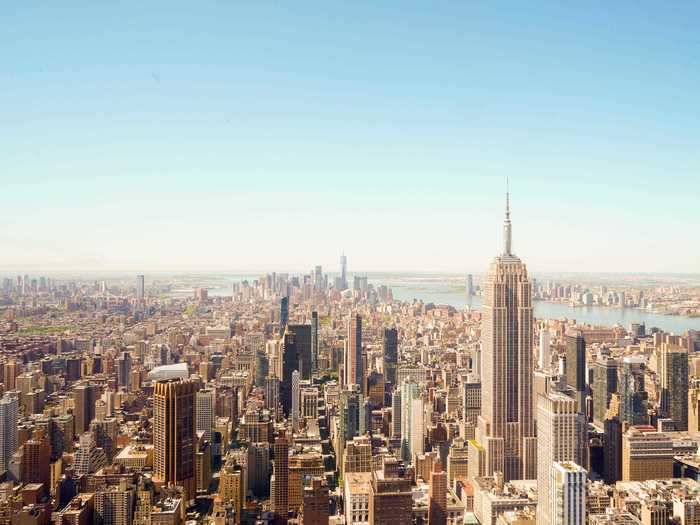
Joey Hadden/Insider
Travelers have countless options including the standard planes, trains, and automobiles, but it still takes close to 4 hours when traveling commercially, at the very least. But one airline is changing all of that.
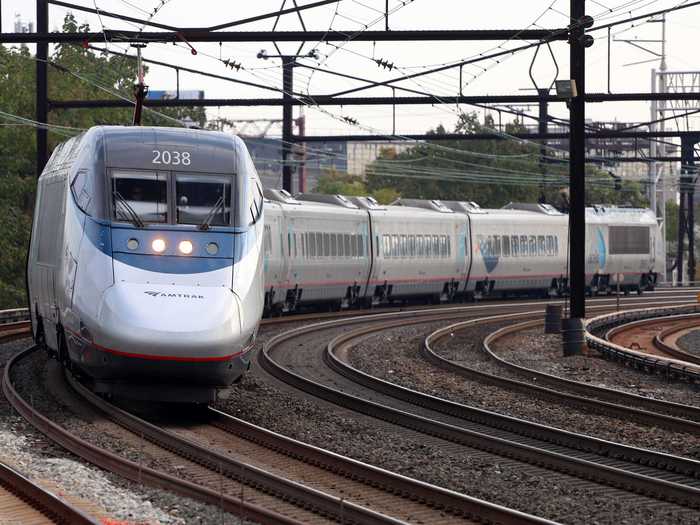
Michael715/Shutterstock.com
Tailwind Air launched seaplane flights between New York and Boston on August 3 with as many as four daily flights soon to be flying between the two cities by the end of the month.
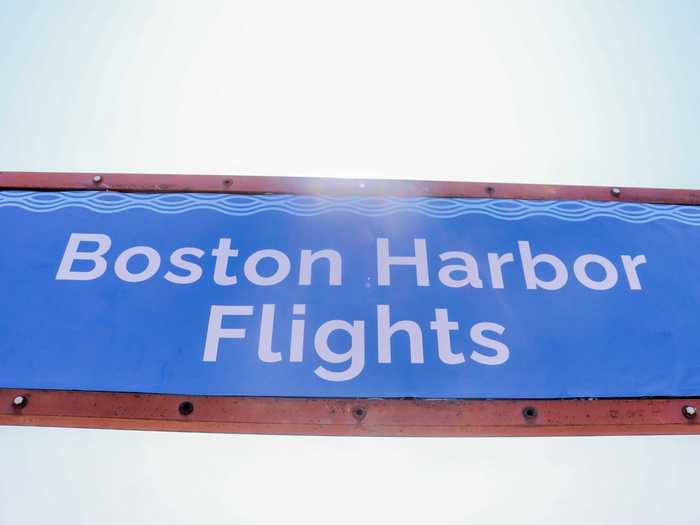
Flying on a Tailwind Air seaplane.
Thomas Pallini/Insider
The flight time is only 75 minutes and the planes use New York's East River and Boston Harbor as airports.
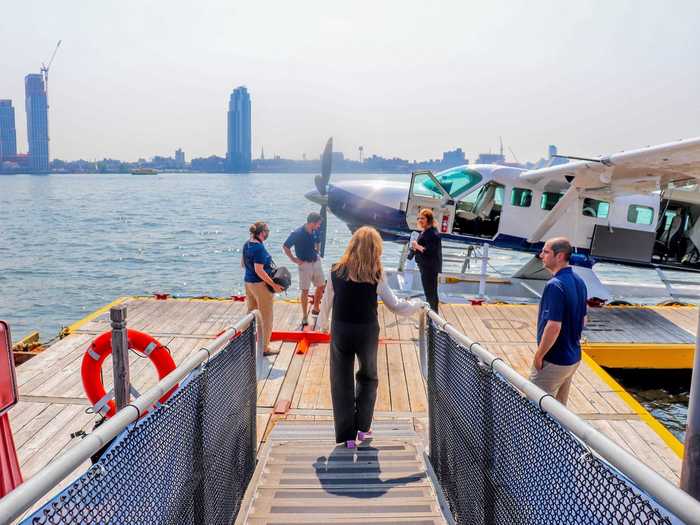
Flying on a Tailwind Air seaplane.
Thomas Pallini/Insider
Tailwind took up some reporters on a demonstration flight using the same aircraft it uses on the New York-Boston runs. Here's what it was like.
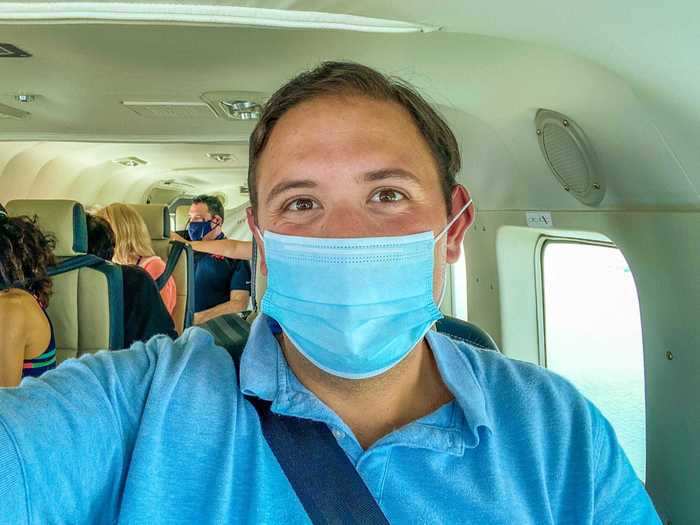
Flying on a Tailwind Air seaplane.
Thomas Pallini/Insider
On the New York side of the route, Tailwind uses Manhattan's New York Seaport located at the intersection of FDR Drive and 23rd Street.
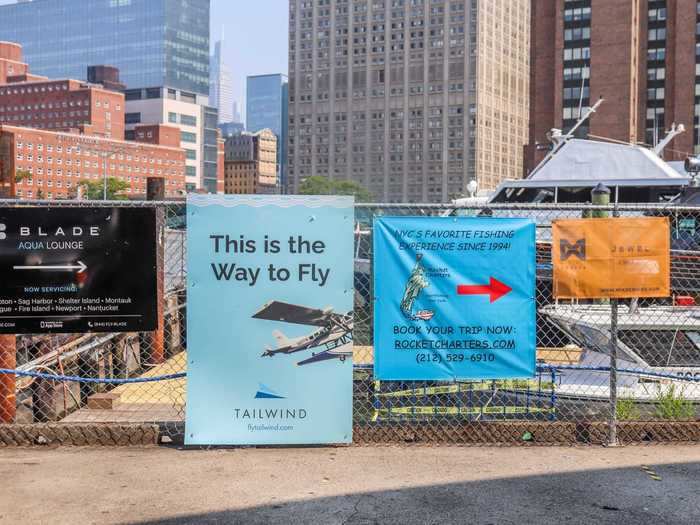
Flying on a Tailwind Air seaplane.
Thomas Pallini/Insider
Tailwind has a small departure lounge at the seaplane base where customers can wait before a flight. It's not much beyond a few comfortable seats and some complimentary drinks, but flyers won't be waiting here long on most days.
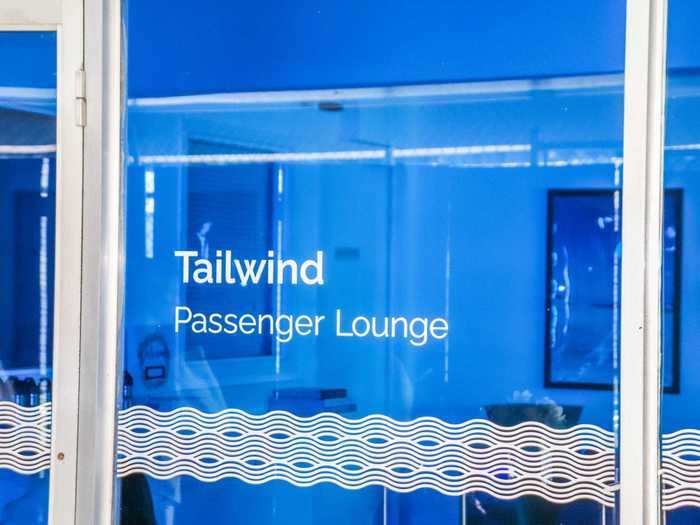
Flying on a Tailwind Air seaplane.
Thomas Pallini/Insider
Unlike traditional commercial flights, Tailwind only requires passengers to show up no later than 10 minutes before a flight. Meanwhile, Amtrak recommends passengers arrive 30 minutes early for its trains.

Flying on a Tailwind Air seaplane.
Thomas Pallini/Insider
Then it's just a short walk down a long pier to get to the seaplane dock where the aircraft is waiting.
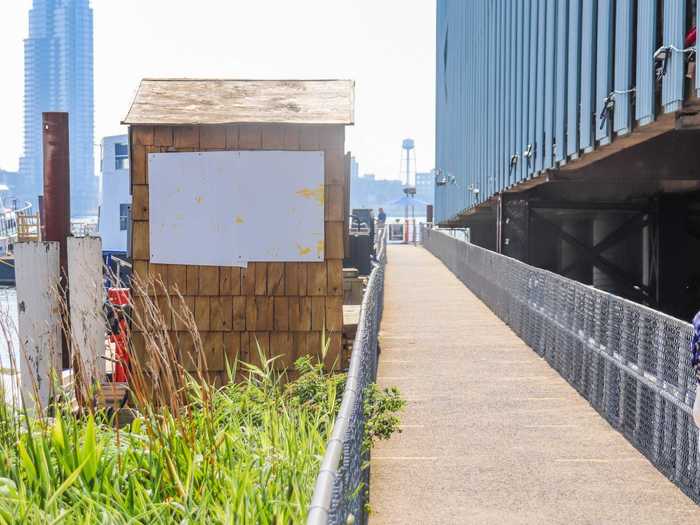
Flying on a Tailwind Air seaplane.
Thomas Pallini/Insider
Cessna Caravan seaplanes operate the exclusive New York-Boston flights with room for eight passengers. Only seven passengers will fly on these runs, however, according to Captain Adam Schewitz.
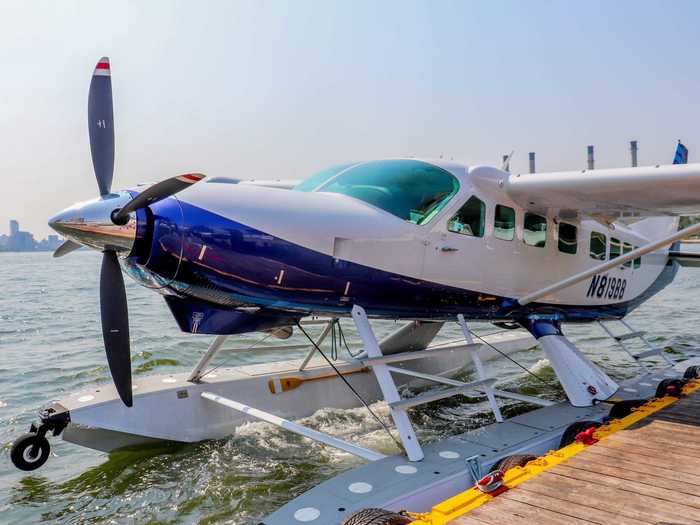
Flying on a Tailwind Air seaplane.
Thomas Pallini/Insider
The aircraft is often flown by a single pilot, but two are at the controls for the Boston flights. One pilot helps passengers onboard and starts up the plane while the other pushes the plane from the dock and then hops onboard.
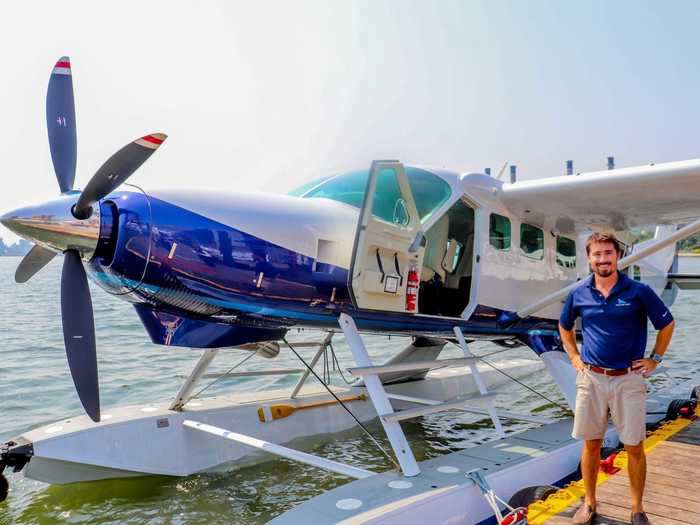
Flying on a Tailwind Air seaplane.
Thomas Pallini/Insider
The cabin is small but not too claustrophobic. Inside, eight leather seats are laid out in a 1-1 configuration.
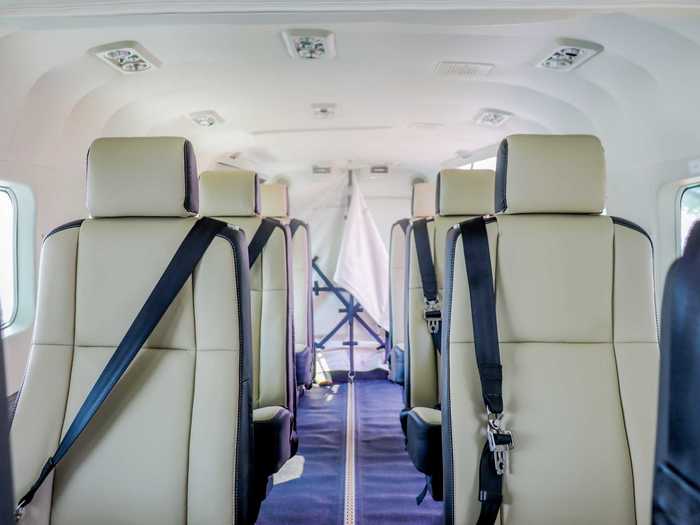
Flying on a Tailwind Air seaplane.
Thomas Pallini/Insider
There aren't any flight attendants, seat-back entertainment screens, or WiFi capabilities on this plane, but the 75-minute flights should be short enough for passengers not to notice.
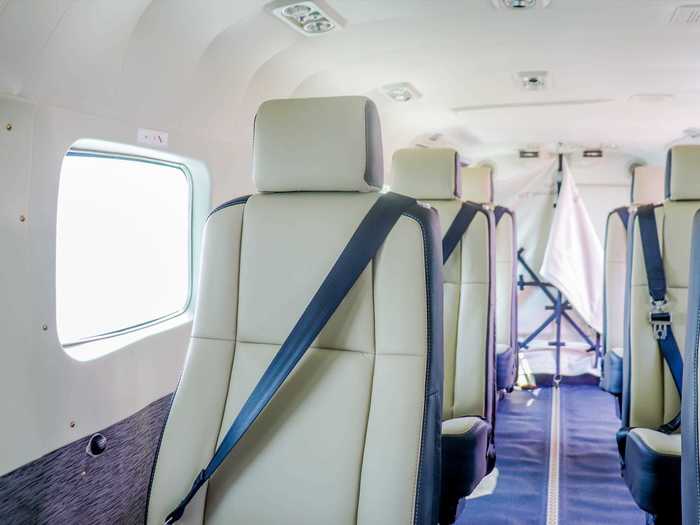
Flying on a Tailwind Air seaplane.
Thomas Pallini/Insider
Passengers are limited on how much baggage they can bring due to weight restrictions but each can be a standard bag of no more than 20 pounds. Tailwind expects business travelers to only be bringing light items.
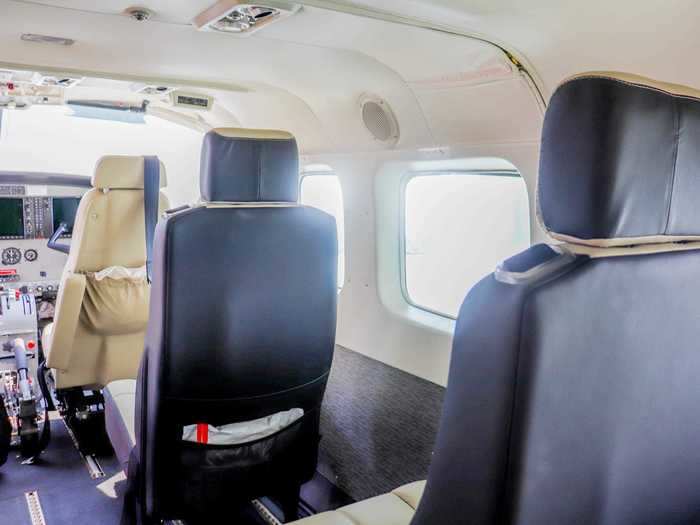
Flying on a Tailwind Air seaplane.
Thomas Pallini/Insider
The cockpit is also open, allowing passengers to get the same view as the pilots.
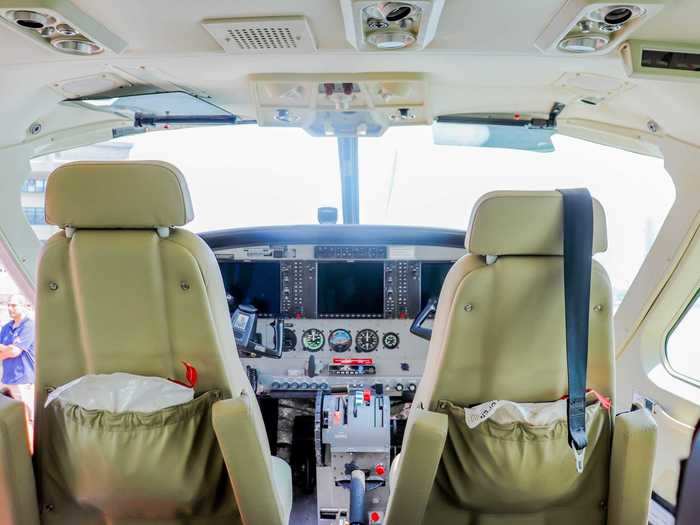
Flying on a Tailwind Air seaplane.
Thomas Pallini/Insider
I was directly behind Schewitz and had bounds of legroom.
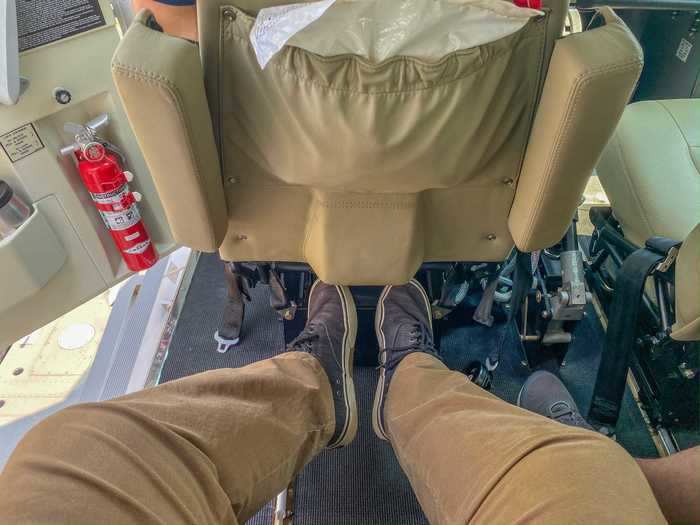
Flying on a Tailwind Air seaplane.
Thomas Pallini/Insider
After all of the passengers were seated, it was time to take to the skies. Schewitz started up the engine and we were off.
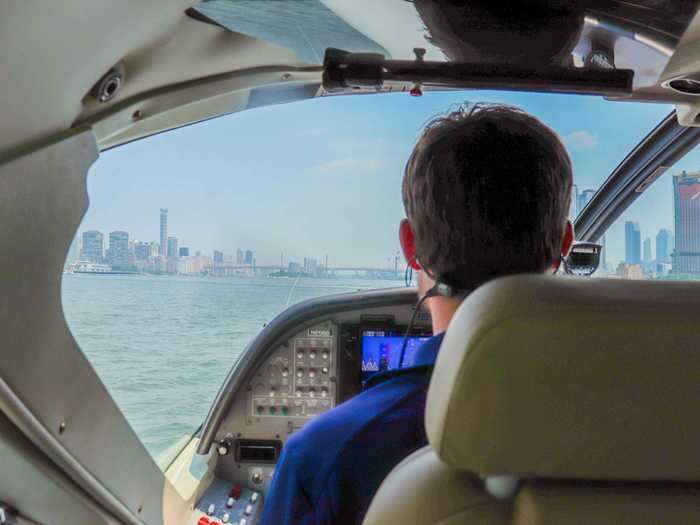
Flying on a Tailwind Air seaplane.
Thomas Pallini/Insider
There's no set runway in the East River so it's up to the pilots to find a clear patch and depart into the wind.
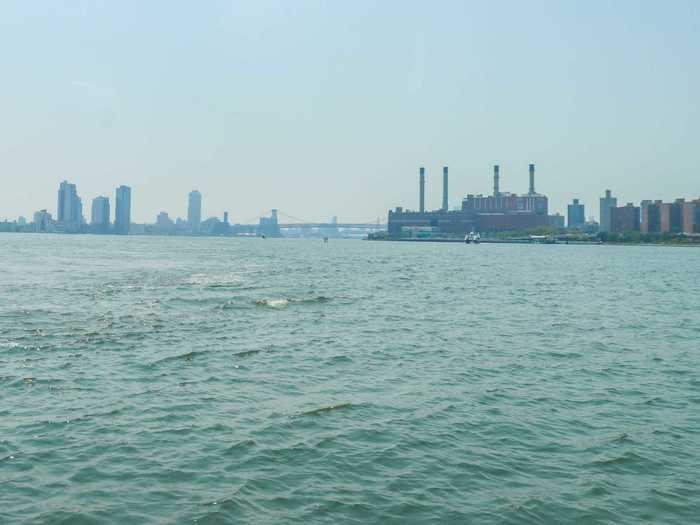
Flying on a Tailwind Air seaplane.
Thomas Pallini/Insider
Already, the views of the city were impressive.
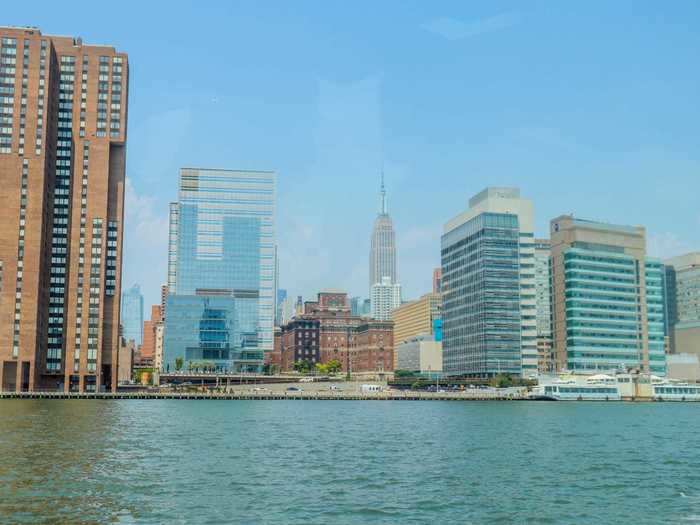
Flying on a Tailwind Air seaplane.
Thomas Pallini/Insider
Seating is also first-come, first-serve - flyers wanting the best view should ask one of the pilots which direction the plane will be departing.
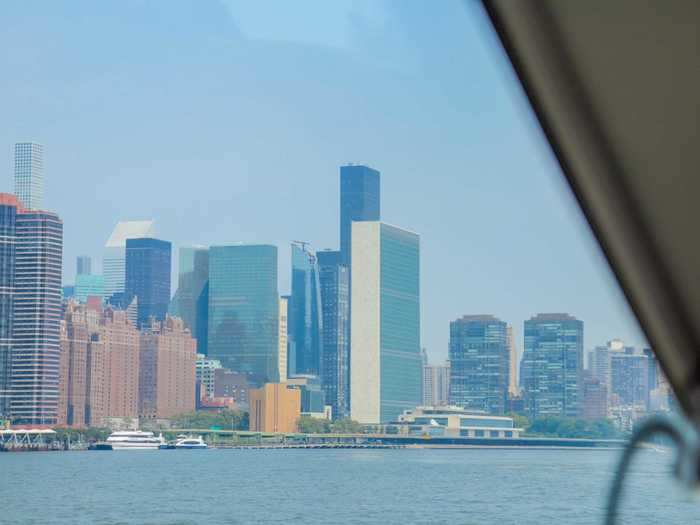
Flying on a Tailwind Air seaplane.
Thomas Pallini/Insider
After a few seconds of bumpiness as we crossed the river, all became calm in the cabin and we ascended above the city.
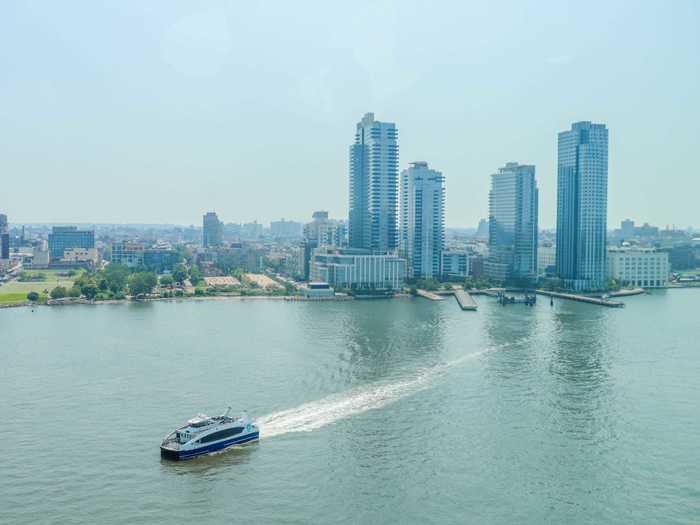
Flying on a Tailwind Air seaplane.
Thomas Pallini/Insider
I was on the left-hand side of the plane so my view was of downtown Brooklyn and the Williamsburg Bridge.
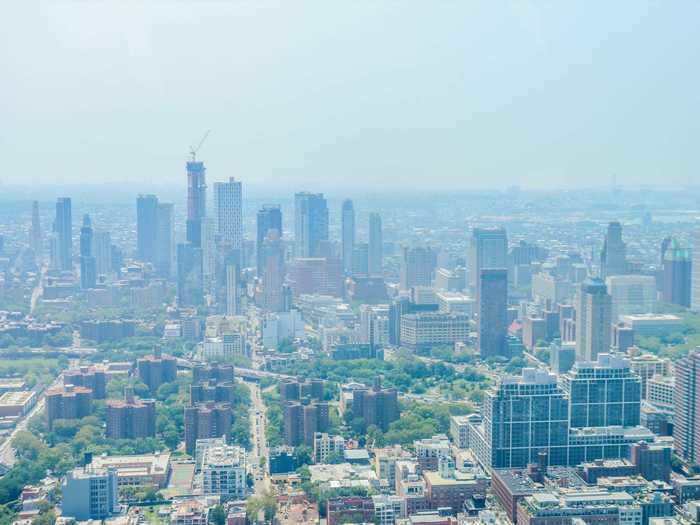
Flying on a Tailwind Air seaplane.
Thomas Pallini/Insider
We also flew right over the highway traffic that this kind of air service allows travelers to avoid.
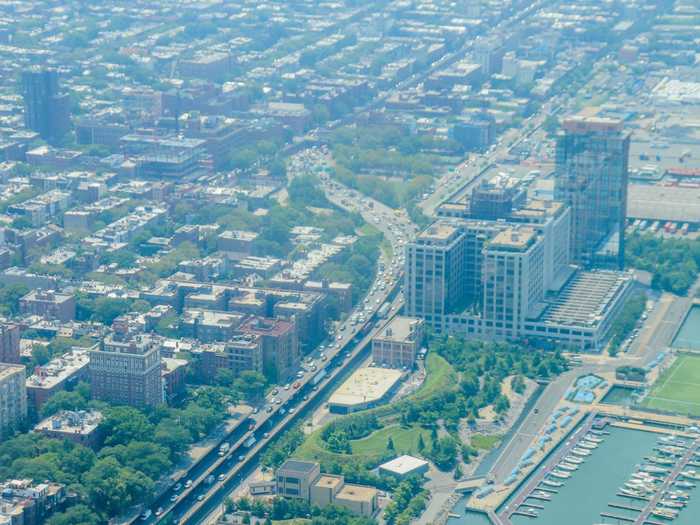
Flying on a Tailwind Air seaplane.
Thomas Pallini/Insider
Just off the other side of the aircraft, however, was Lower Manhattan, the Brooklyn and Manhattan Bridges, and the Freedom Tower.
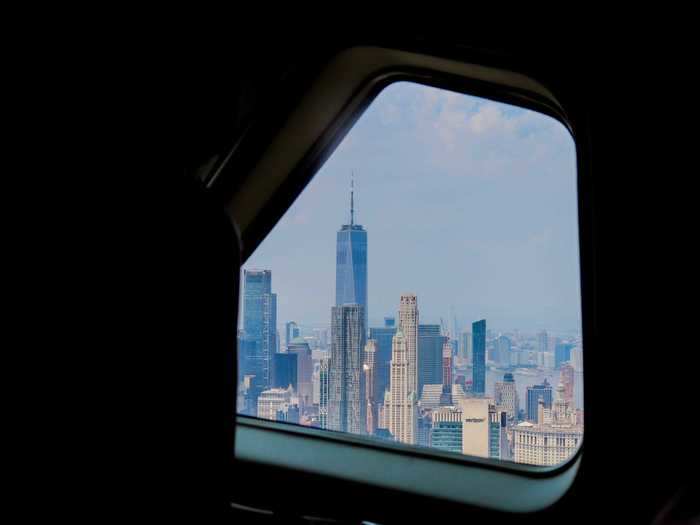
Flying on a Tailwind Air seaplane.
Thomas Pallini/Insider
We flew down the river at an altitude of around 1,000 feet, not quite high enough to fly above the Freedom Tower.
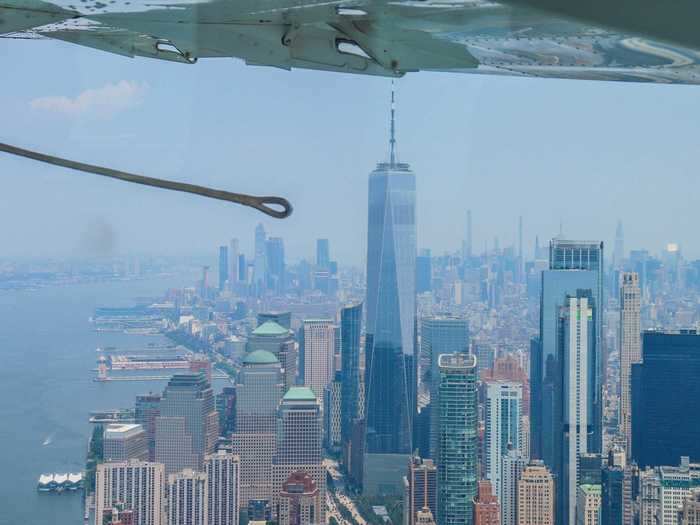
Flying on a Tailwind Air seaplane.
Thomas Pallini/Insider
New York Harbor then came into view with the ships waiting to dock at the Port of New York and New Jersey.
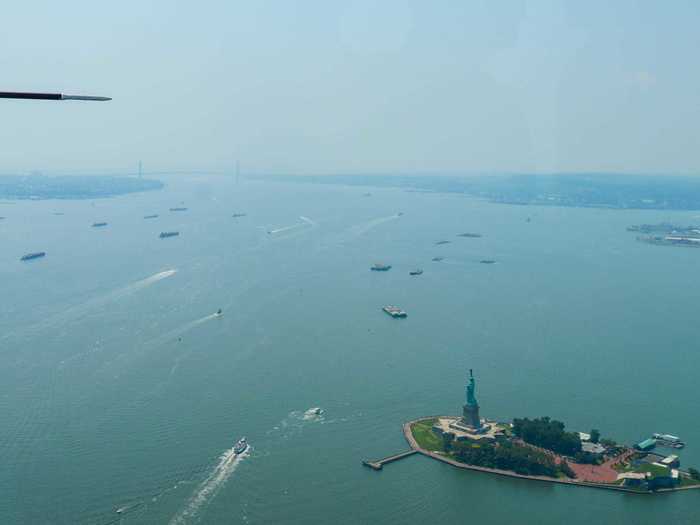
Flying on a Tailwind Air seaplane.
Thomas Pallini/Insider
And, of course, the Statue of Liberty did not fail to impress - we did a quick circle over Liberty Island.
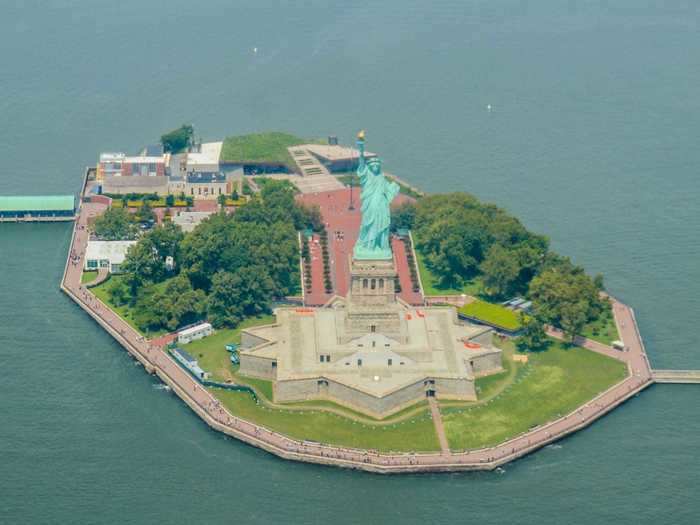
Flying on a Tailwind Air seaplane.
Thomas Pallini/Insider
Then we headed up the Hudson River just a few thousand feet from the Freedom Tower. On my side of the plane was New Jersey, including Jersey City and Hoboken.
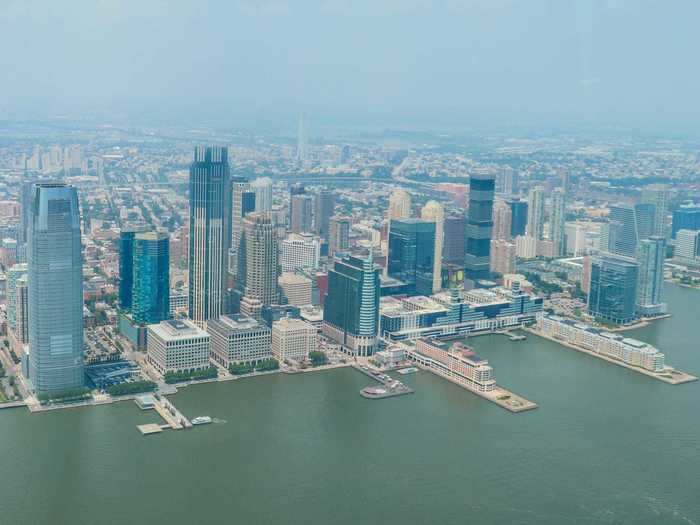
Flying on a Tailwind Air seaplane.
Thomas Pallini/Insider
The Hudson River is a popular area for air traffic and we would occasionally hear warnings from the cockpit about other aircraft in the vicinity. But the aircraft's advanced avionics system allowed Schewitz to easily avoid other aircraft.
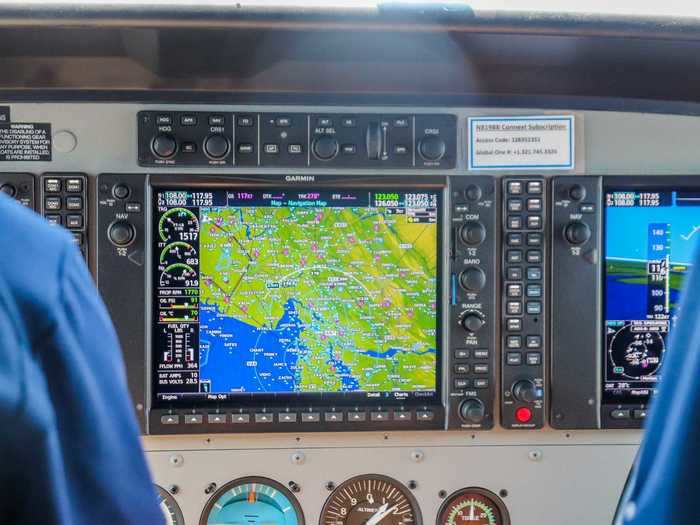
Flying on a Tailwind Air seaplane.
Thomas Pallini/Insider
Additional sights included Madison Square Garden...
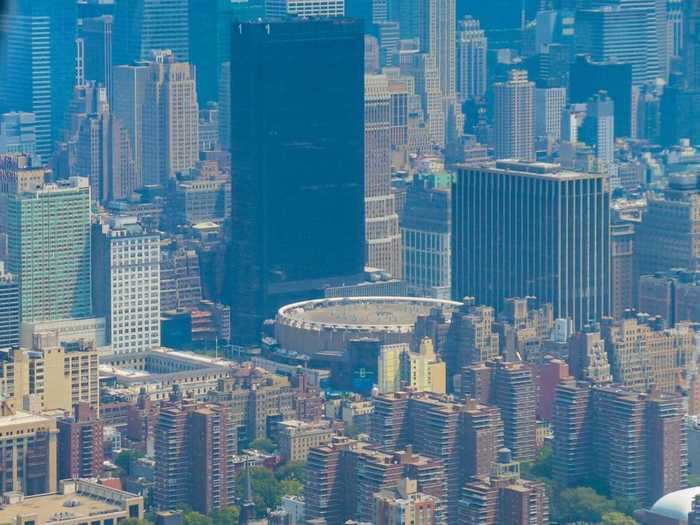
Flying on a Tailwind Air seaplane.
Thomas Pallini/Insider
and Hudson Yards.
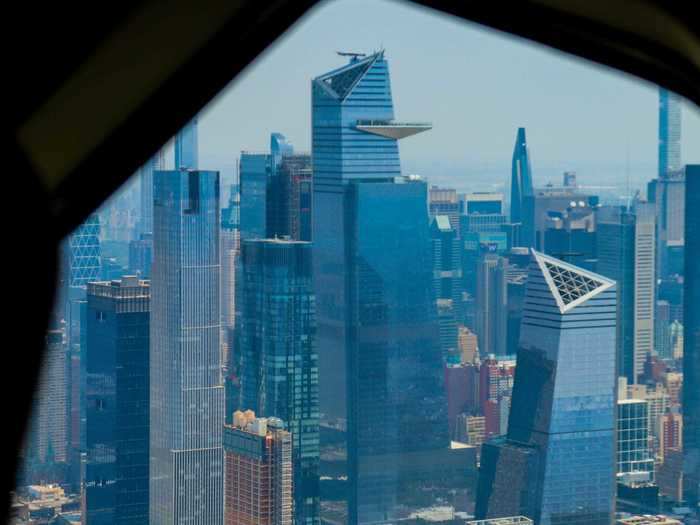
Flying on a Tailwind Air seaplane.
Thomas Pallini/Insider
Our sightseeing flight was soon coming to an end and we crossed Central Park on approach to the East River.
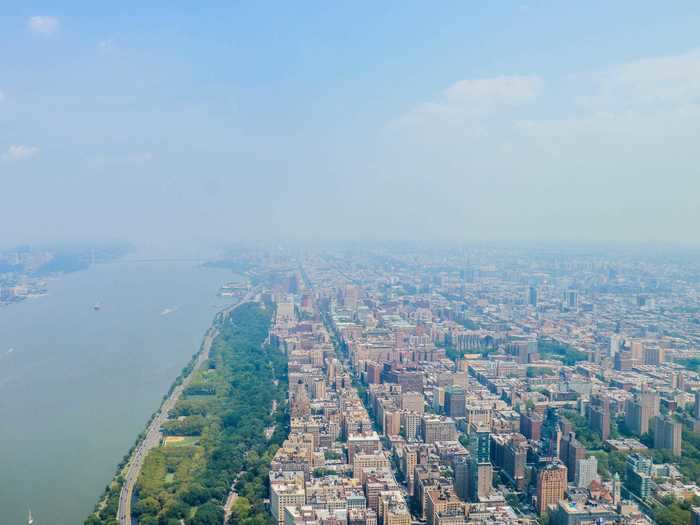
Flying on a Tailwind Air seaplane.
Thomas Pallini/Insider
The George Washington Bridge, Harlem, and Randall's Island all came into view.
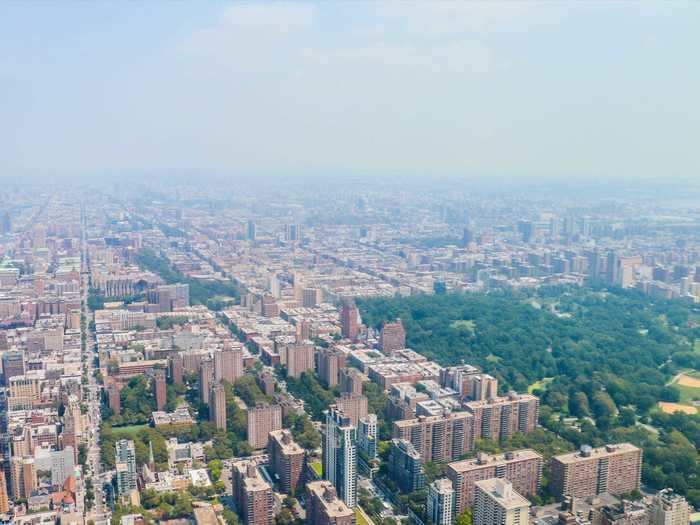
Flying on a Tailwind Air seaplane.
Thomas Pallini/Insider
The Hell Gate Bridge, which carries Amtrak trains from Boston and New England, was also visible, in a bit of irony. In the time it would take this plane to reach Boston from New York, Amtrak's Acela would only make it to around New Haven, Connecticut.
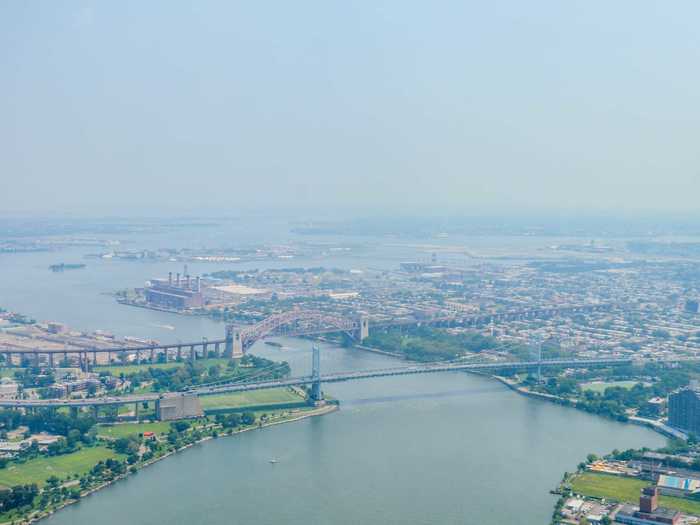
Flying on a Tailwind Air seaplane.
Thomas Pallini/Insider
Once again, Schewitz would have to imagine a runway in the middle of the East River, staying clear of boat traffic and helicopters from the East 34th Street Heliport.
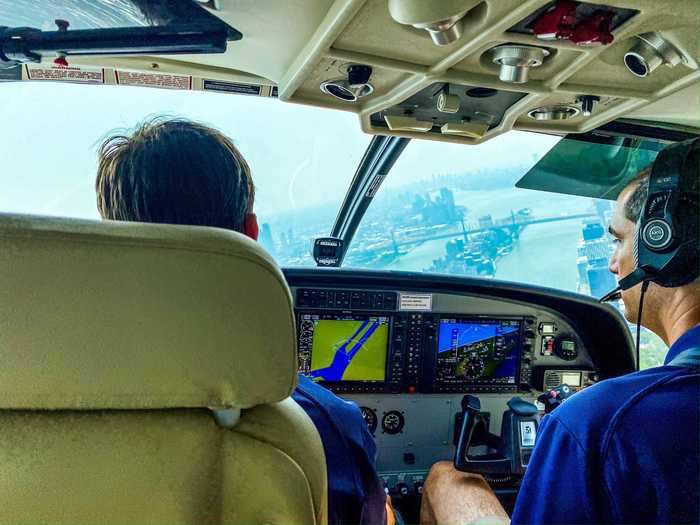
Flying on a Tailwind Air seaplane.
Thomas Pallini/Insider
Roosevelt Island was visible from my side of the plane as we slowly descended for an East River landing, with Schewitz being careful to avoid the Queensboro Bridge as we flew a few hundred feet overhead.
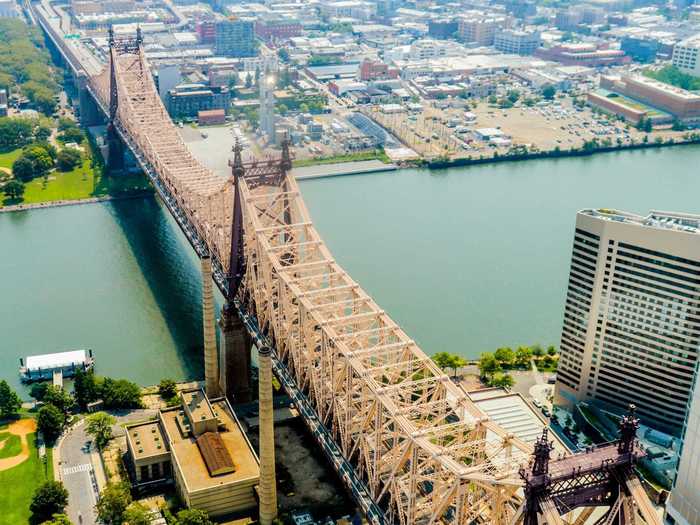
Flying on a Tailwind Air seaplane.
Thomas Pallini/Insider
F. Scott Fitzgerald's famous quote from "The Great Gatsby" about "the city seen from the Queensboro Bridge is the city seen for the first time," took on a whole new meaning.
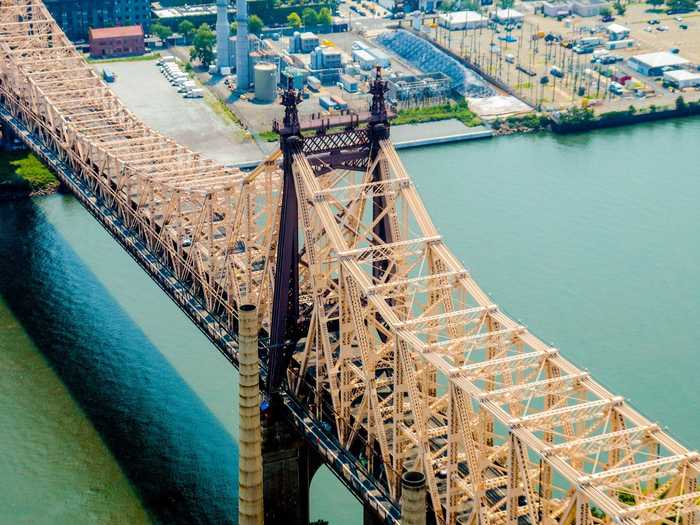
Flying on a Tailwind Air seaplane.
Thomas Pallini/Insider
From the opposite window, I could see some of Midtown Manhattan's tallest buildings, including those on Billionaire's Row.
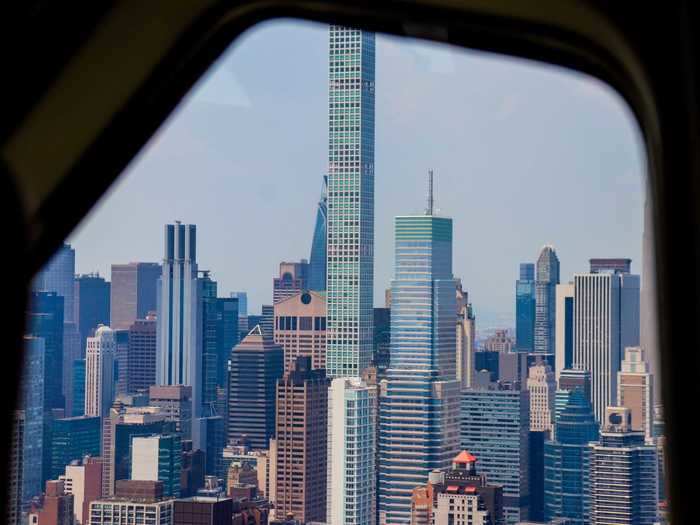
Flying on a Tailwind Air seaplane.
Thomas Pallini/Insider
I was most concerned about landing in the East River, given the boat traffic and potentially rocky water.
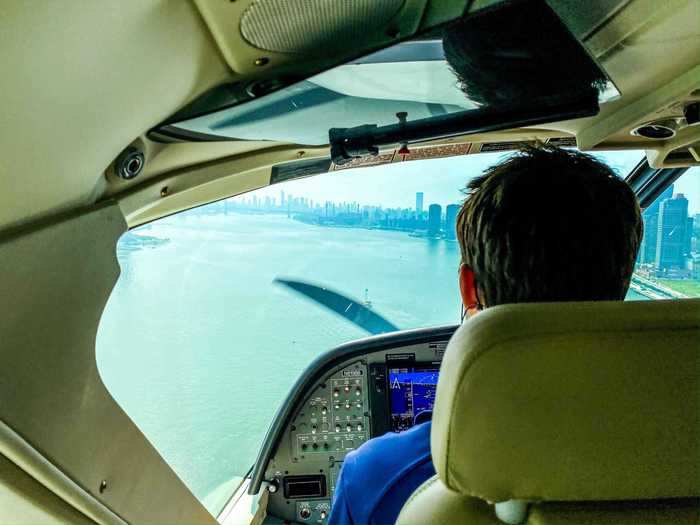
Flying on a Tailwind Air seaplane.
Thomas Pallini/Insider
Case in point: I could see a New York City ferry nearly opposite our flight path, but it proved to be no issue.
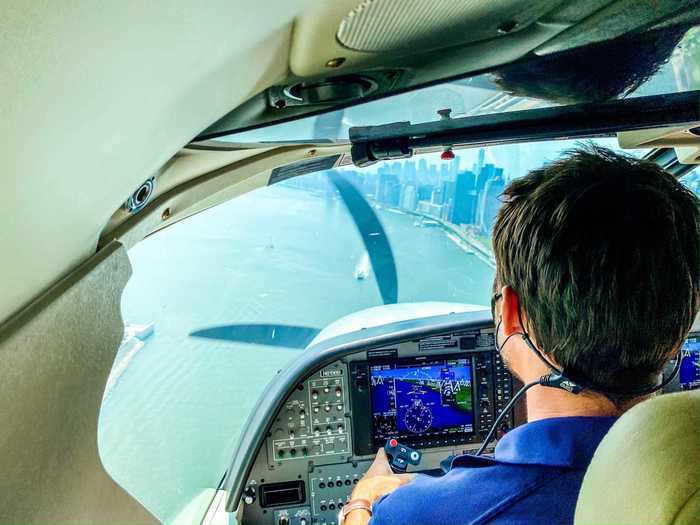
Flying on a Tailwind Air seaplane.
Thomas Pallini/Insider
"It's their river," Schewitz told Insider, adding that it's his responsibility to avoid them while communicating on an advisory frequency monitored by all operating in the river.
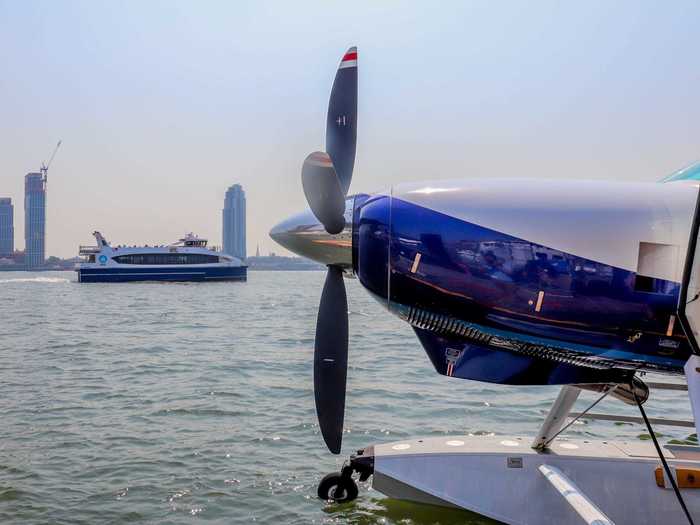
Flying on a Tailwind Air seaplane.
Thomas Pallini/Insider
Congestion in the river could mean that the aircraft could have to attempt another landing once the traffic dissipates.
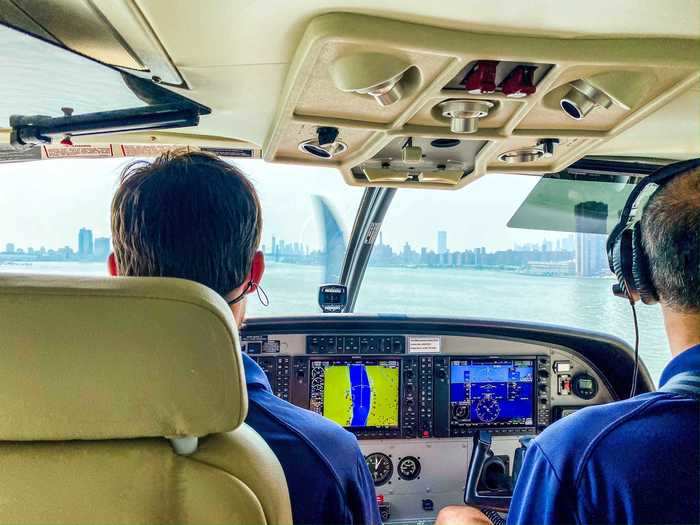
Flying on a Tailwind Air seaplane.
Thomas Pallini/Insider
Despite landing on water and not a paved runway, it was one of the smoothest landings I've ever experienced. Schewitz slowed the plane using reverse thrust and then we slowly drifted towards the dock.
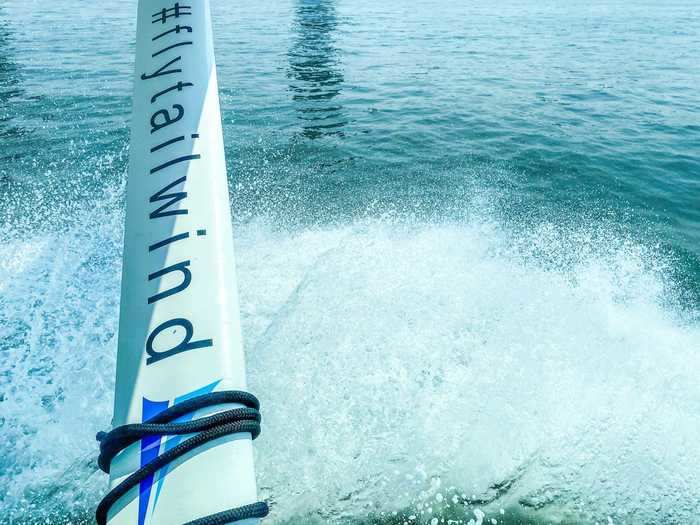
Flying on a Tailwind Air seaplane.
Thomas Pallini/Insider
It appeared to be incredibly quiet from the cockpit for the whole flight, but Schewitz said he was speaking on at least five different frequencies during our 12-minute flight.
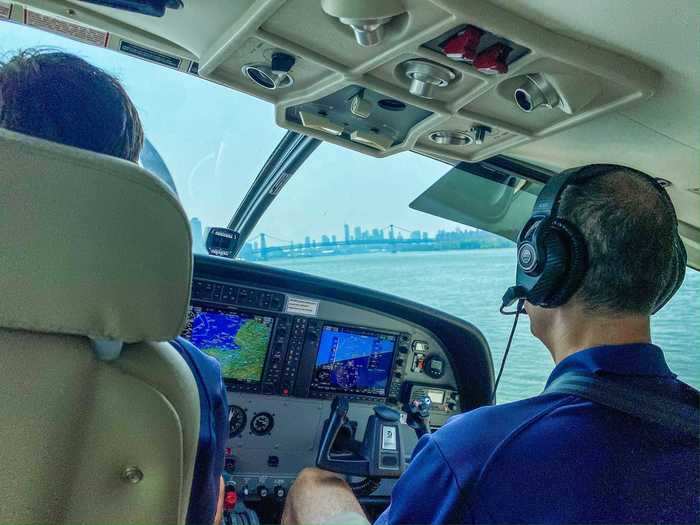
Flying on a Tailwind Air seaplane.
Thomas Pallini/Insider
Just like that, we were back where we started. If I was a business traveler that had just arrived, I could be in the heart of Midtown Manhattan in minutes or down on Wall Street in less than half an hour.
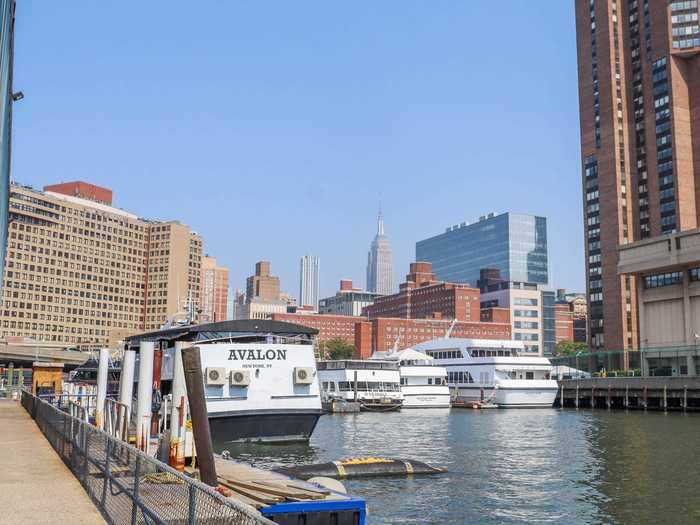
Flying on a Tailwind Air seaplane.
Thomas Pallini/Insider
Overall, it's easy to see why taking a seaplane would be more convenient than even the high-speed Acela.
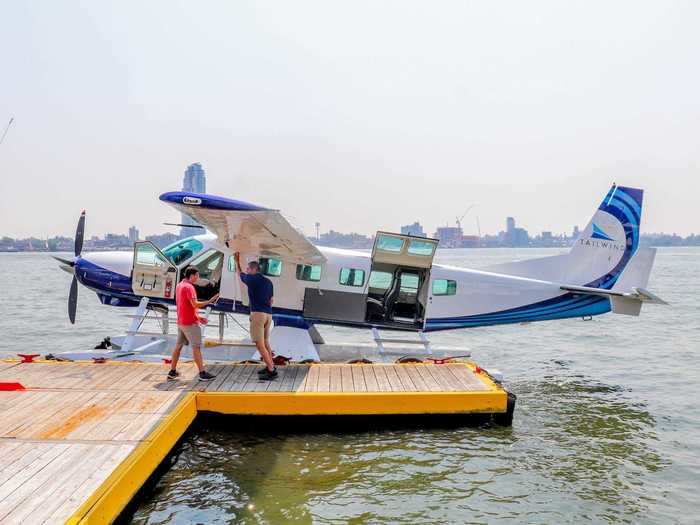
Flying on a Tailwind Air seaplane.
Thomas Pallini/Insider
Specifically, the lack of security checks, the ability to arrive at the plane just 10 minutes before departure, and the convenience of downtown departure points make this mode of travel perfect for New York-Boston travel.
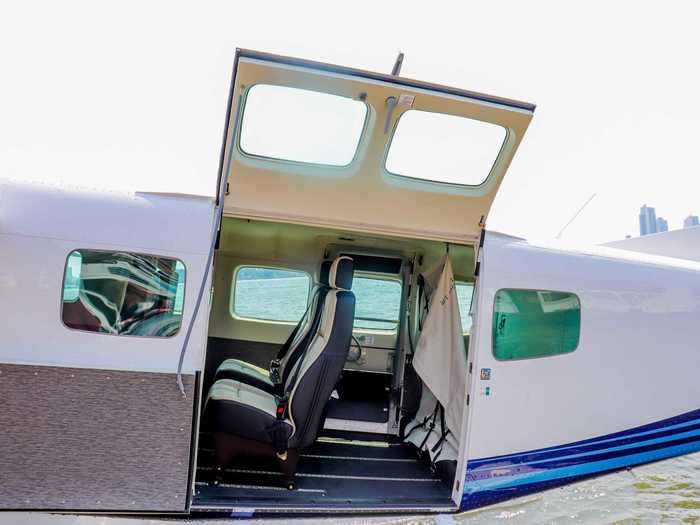
Flying on a Tailwind Air seaplane.
Thomas Pallini/Insider
And if either the East River or Boston Harbor isn't available, the seaplane can use its traditional landing gear to land at a regular airport.
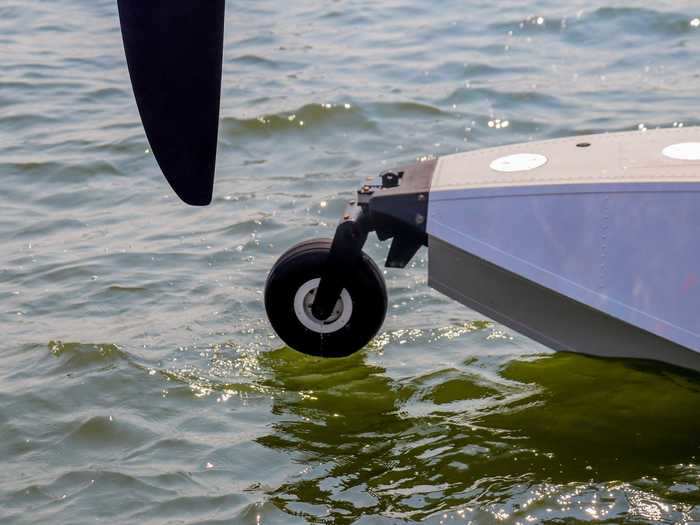
Flying on a Tailwind Air seaplane.
Thomas Pallini/Insider
READ MORE ARTICLES ON
Popular Right Now
Popular Keywords
Advertisement